Forgotten Gods of India: 8 Ancient Deities Who Vanished from Our Prayers
Noopur Kumari | May 06, 2025, 09:00 IST
Forgotten Gods of India
( Image credit : Times Life Bureau )
They once ruled the skies, the seas, and our souls. Today, they survive only in whispers of forgotten mantras and fading temple stones. Who were these ancient gods India once worshipped with devotion, but slowly abandoned over time? This article uncovers 8 powerful deities who shaped early Indian faith—and reveals how they vanished from prayers, but not from the echoes of our past.
Their names used to reverberate through early morning prayers, fire rites, and sacred chants. As guardians of rain, fire, dawn, and justice, they were the lifeblood of ancient Indian devotion. But today, their temples are forgotten, their mantras are hardly uttered, and they live in the footnotes of mythology. We used to worship these gods, but who were they? What caused them to disappear into the darkness? Let's travel back in time to discover eight potent deities that were previously revered in India but are now all but extinct.
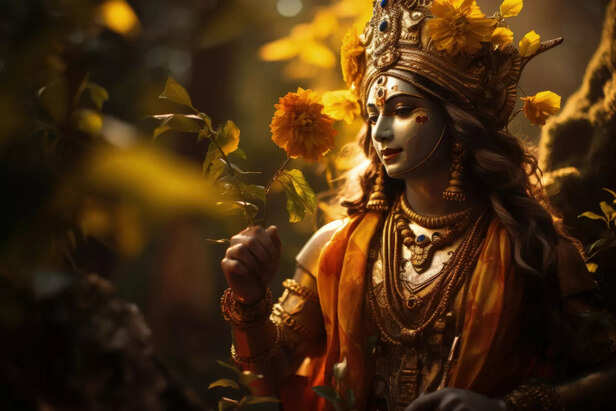
Indra was once the greatest of all gods—the fearless ruler of heaven, wielder of the thunderbolt, and hero of the Vedas. He defeated demons, brought rain to the thirsty earth, and was worshipped by kings and farmers alike. But as time passed and gods like Vishnu and Shiva rose in devotion, Indra lost his throne. Once celebrated in sacred hymns, he became a side character in myth—present, but no longer powerful. Today, he lives on in stories, not in prayers. Once a god of storms, Indra is now just a quiet echo of a glorious past
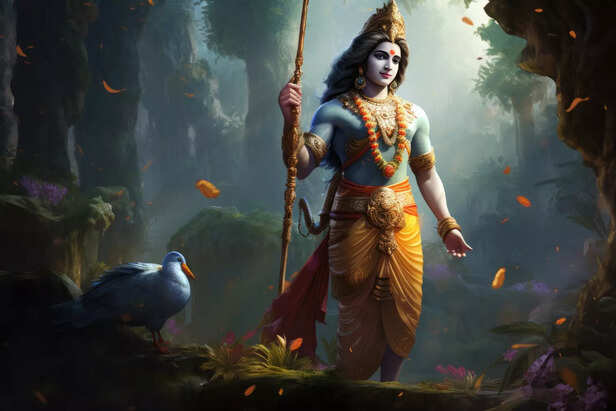
In the past, Agni served as the sacred fire that united people with the gods and was the flaming center of all rituals. No ceremony in Vedic times started without him. He escorted souls in cremations, observed marriages, and took our petitions to heaven. His radiant presence was revered in every home. However, Agni gradually disappeared from everyday life as customs changed from fire rites to idolatry and temple worship. He only appears occasionally these days, at holy fires or weddings, and is more of a remembrance than a god with whom we have a close relationship. Though primarily in the shadows of what was once holy devotion, his flame is still burning.
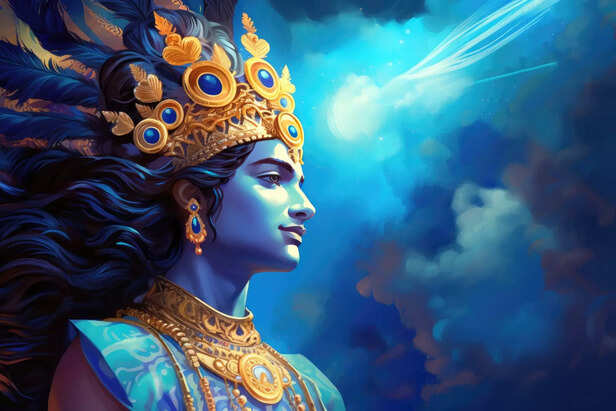
Varuna was once the mighty guardian of truth and justice—the cosmic judge who kept the universe in balance. He ruled the oceans, judged human actions, and punished those who lied or broke moral codes. Seafarers, kings, and common people feared and worshipped him. But as Hindu beliefs shifted, Varuna’s strict image lost favour. His powers were slowly absorbed by Vishnu, and his temples vanished. Today, Varuna watches quietly from the shadows—once a god of the highest order, now mostly forgotten, his name just a whisper in ancient verses. Yet his story still echoes with the power of lost divinity.
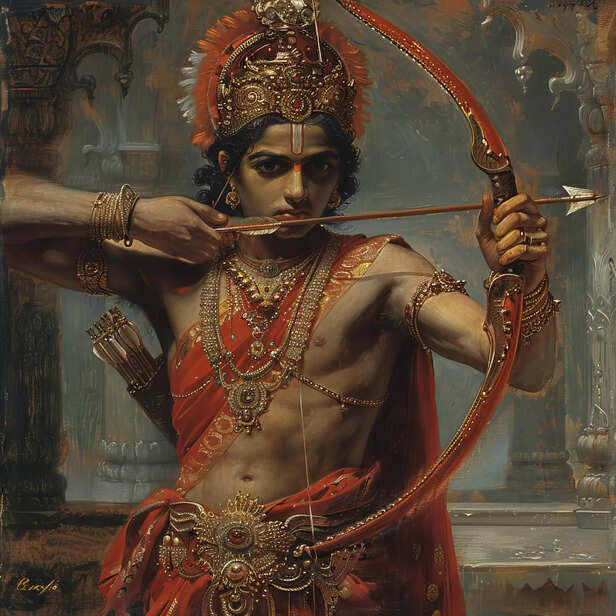
Mitra, often paired with Varuna, symbolised loyalty, harmony, and truth. In a world where bonds were sacred, Mitra stood for all that held people together—agreements, trust, and companionship. Farmers prayed for peaceful coexistence; merchants for honest dealings. But in a shifting society, where personal devotion overtook social contracts, Mitra’s subtle power was eclipsed. His presence now exists only in ancient hymns and as a quiet reminder of divine friendship.

Once the centre of Indian spirituality, Surya was a potent deity of light, healing, and life, not merely the sun in the sky. He was revered fervently while riding his golden chariot drawn by seven horses. In his honour, imposing temples such as Konark and Modhera were built. However, Surya's powerful presence diminished over time as worship turned to other deities like Shiva and Vishnu. Although his once-glorious veneration has waned, he is still remembered today during Chhath Puja and other rites. His tale serves as a reminder that even the most brilliant gods can fade into the past.
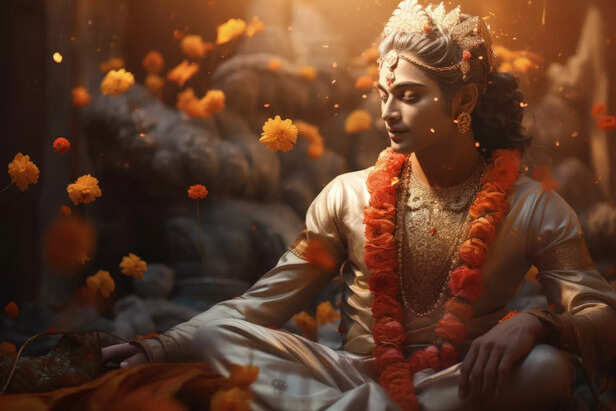
Savitr was once a powerful and inspiring god in ancient India—known as the force behind the rising sun and the divine spark of creativity. His name lives on through the Gayatri Mantra, one of Hinduism’s most sacred chants, recited at dawn to awaken wisdom and light. He was worshipped as the guide of cosmic rhythm and higher thought. But over time, his identity faded as Surya, the Sun God, rose in prominence. Today, Savitr is rarely remembered as a separate deity. He lives on in sound and prayer—but the god himself has vanished from everyday worship.
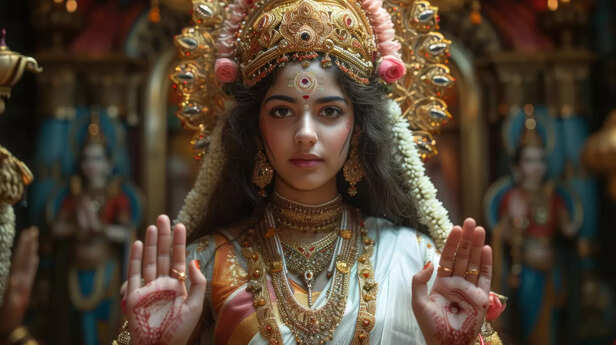
In the past, Ushas, the goddess of morning, represented the heavenly event that was every sunrise. She brought beauty, hope, and renewal, painted the skies pink, and arrived in a golden chariot. As a young bride, full of life and promise, she was praised in hymns. However, over time, goddesses linked to riches and power, such as Durga and Lakshmi, gained prominence. With her devotion gone but her spirit still alive with each daybreak, Ushas dissolved into lyrical metaphors.
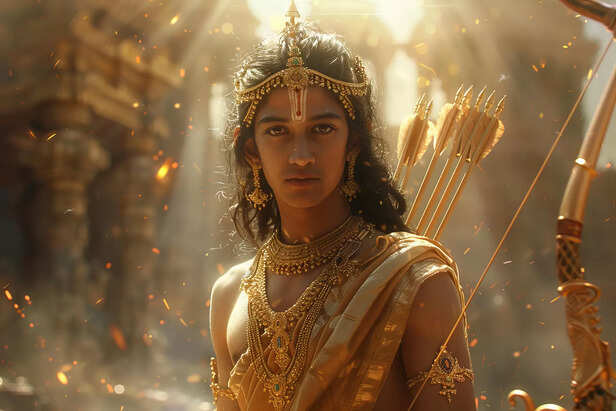
Yama, the god of death, was once a mighty judge in Hindu cosmology. He ruled the afterlife with fairness, sending souls to heaven or hell based on karma. People worshipped him out of both respect and fear. He was a necessary god—one who reminded mortals of dharma and consequence. But as concepts of karma and reincarnation matured, Yama’s personified role diminished. Now, he appears in stories as a character—not as a deity people pray to.
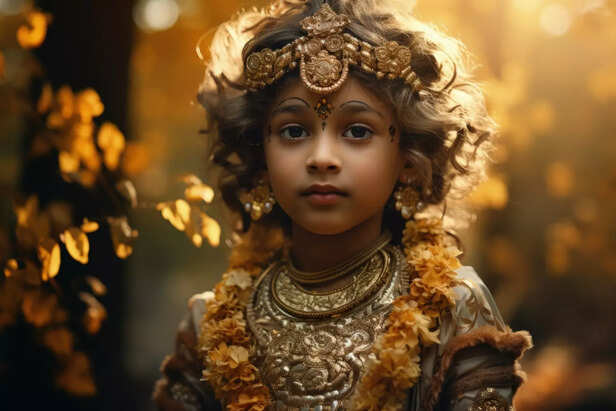
The fall of these once-worshipped deities wasn’t sudden. It was gradual, mirroring the evolution of Indian society. The Bhakti movement shifted focus from Vedic fire rituals to personal devotion and temple-based worship. Vishnu, Shiva, and Devi grew in prominence, absorbing many roles once held by these Vedic gods. Some deities, like Agni and Surya, were merged into bigger identities; others, like Mitra and Ushas, were quietly forgotten. As religious needs changed, so did the gods who fulfilled them.
These ancient gods remind us that faith is fluid. That divinity, once central to our lives, can be pushed to the margins by time, politics, and changing values. But in remembering them, we don’t just honor the past—we connect with a time when nature, justice, dawn, and death were not just phenomena, but living gods. Their stories still breathe in our scriptures, waiting to be rediscovered, retold, and revered a new.Perhaps, as we walk through the ruins of sun temples or read verses from the Rigveda, we can pause and whisper a forgotten name. For in doing so, we light a small lamp in the memory of gods India once loved—and lost.
Explore the latest trends and tips in Health & Fitness, Travel, Life Hacks, Fashion & Beauty, and Relationships at Times Life!
1. Indra Dev: The Thunderous King

Indra Dev:
( Image credit : Freepik )
Indra was once the greatest of all gods—the fearless ruler of heaven, wielder of the thunderbolt, and hero of the Vedas. He defeated demons, brought rain to the thirsty earth, and was worshipped by kings and farmers alike. But as time passed and gods like Vishnu and Shiva rose in devotion, Indra lost his throne. Once celebrated in sacred hymns, he became a side character in myth—present, but no longer powerful. Today, he lives on in stories, not in prayers. Once a god of storms, Indra is now just a quiet echo of a glorious past
2. Agni Dev: The Sacred Flame

Agni
( Image credit : Freepik )
In the past, Agni served as the sacred fire that united people with the gods and was the flaming center of all rituals. No ceremony in Vedic times started without him. He escorted souls in cremations, observed marriages, and took our petitions to heaven. His radiant presence was revered in every home. However, Agni gradually disappeared from everyday life as customs changed from fire rites to idolatry and temple worship. He only appears occasionally these days, at holy fires or weddings, and is more of a remembrance than a god with whom we have a close relationship. Though primarily in the shadows of what was once holy devotion, his flame is still burning.
3. Varuna Dev: The Cosmic Judge

Varuna
( Image credit : Freepik )
Varuna was once the mighty guardian of truth and justice—the cosmic judge who kept the universe in balance. He ruled the oceans, judged human actions, and punished those who lied or broke moral codes. Seafarers, kings, and common people feared and worshipped him. But as Hindu beliefs shifted, Varuna’s strict image lost favour. His powers were slowly absorbed by Vishnu, and his temples vanished. Today, Varuna watches quietly from the shadows—once a god of the highest order, now mostly forgotten, his name just a whisper in ancient verses. Yet his story still echoes with the power of lost divinity.
4. Mitra Dev: The God of Friendship

Mitra Dev
( Image credit : Freepik )
Mitra, often paired with Varuna, symbolised loyalty, harmony, and truth. In a world where bonds were sacred, Mitra stood for all that held people together—agreements, trust, and companionship. Farmers prayed for peaceful coexistence; merchants for honest dealings. But in a shifting society, where personal devotion overtook social contracts, Mitra’s subtle power was eclipsed. His presence now exists only in ancient hymns and as a quiet reminder of divine friendship.
5. Surya Dev: The Radiant Sun

surya dev
( Image credit : Times Life Bureau )
Once the centre of Indian spirituality, Surya was a potent deity of light, healing, and life, not merely the sun in the sky. He was revered fervently while riding his golden chariot drawn by seven horses. In his honour, imposing temples such as Konark and Modhera were built. However, Surya's powerful presence diminished over time as worship turned to other deities like Shiva and Vishnu. Although his once-glorious veneration has waned, he is still remembered today during Chhath Puja and other rites. His tale serves as a reminder that even the most brilliant gods can fade into the past.
6. Savitr: The Divine Inspirer

Savitr
( Image credit : Freepik )
Savitr was once a powerful and inspiring god in ancient India—known as the force behind the rising sun and the divine spark of creativity. His name lives on through the Gayatri Mantra, one of Hinduism’s most sacred chants, recited at dawn to awaken wisdom and light. He was worshipped as the guide of cosmic rhythm and higher thought. But over time, his identity faded as Surya, the Sun God, rose in prominence. Today, Savitr is rarely remembered as a separate deity. He lives on in sound and prayer—but the god himself has vanished from everyday worship.
7. Ushas: The Dawn Goddess

Ushas
( Image credit : Freepik )
In the past, Ushas, the goddess of morning, represented the heavenly event that was every sunrise. She brought beauty, hope, and renewal, painted the skies pink, and arrived in a golden chariot. As a young bride, full of life and promise, she was praised in hymns. However, over time, goddesses linked to riches and power, such as Durga and Lakshmi, gained prominence. With her devotion gone but her spirit still alive with each daybreak, Ushas dissolved into lyrical metaphors.
8. Yama: The Lord of Death

Yama
( Image credit : Freepik )
Yama, the god of death, was once a mighty judge in Hindu cosmology. He ruled the afterlife with fairness, sending souls to heaven or hell based on karma. People worshipped him out of both respect and fear. He was a necessary god—one who reminded mortals of dharma and consequence. But as concepts of karma and reincarnation matured, Yama’s personified role diminished. Now, he appears in stories as a character—not as a deity people pray to.
Why Did These Gods Fade?

god
( Image credit : Freepik )
The fall of these once-worshipped deities wasn’t sudden. It was gradual, mirroring the evolution of Indian society. The Bhakti movement shifted focus from Vedic fire rituals to personal devotion and temple-based worship. Vishnu, Shiva, and Devi grew in prominence, absorbing many roles once held by these Vedic gods. Some deities, like Agni and Surya, were merged into bigger identities; others, like Mitra and Ushas, were quietly forgotten. As religious needs changed, so did the gods who fulfilled them.
An Vision into Forgotten Divinity
Explore the latest trends and tips in Health & Fitness, Travel, Life Hacks, Fashion & Beauty, and Relationships at Times Life!
